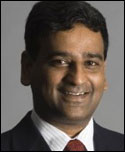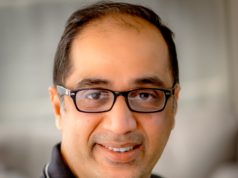 Maneesh Mishra, IA Head – Energy & Civil, Citec Group
Maneesh Mishra, IA Head – Energy & Civil, Citec Group
TheVaasa headquartered Finnish company Citec is a multi-discipline engineering and consulting services company providing complete engineering solutions in energy, process and environment engineering as well as project management services. Maneesh Mishra speaks to Lalitha Rao on the evolving trends in the Indian energy sector and Citec’s role in India.
What is your broad outlook on the Indian energy sector?
All depends on the growth we have in the energy sector. We are projecting a growth rate of around 8 per cent of GDP. In terms of power requirement, this translates into 300-350 GW by next five years. Currently, the demand is sitting at 120 GW. That essentially means we have to grow around 25 GW per year on installed capacity, so that is like five times what we are currently growing at.
So there is a lot of pressure on development of power sector in India. This is coming mainly from the growth we are seeing in manufacturing and and a lot of grid connectivity and so on. So definitely there is a peak requirement, a big increase in demand.
Do you suggest any reform in the policies?
Yes, mainly on the fuel side; reform in coal policy, basically in mining, there is a requirement for a captive mining policy. A mining policy has to be formed as there are lots of gaps and issues like political, security etc. which is restricting mining companies to mine in remote areas and on the gap side more formation of clear policies about the reserves which are found in India, about regulations of the reserves, private companies, policy decisions around these areas on coal, gas and the demand side as well.
There is need for an action plan for high efficiency in policies on the consumer side mainly what the Bureau of Energy Efficiency is doing. So these kind of measures are required to catch up with the demand we have projected.
Energy being the primary focus for Citec, can you summarise your company’s activities in this sector?
Citec is an engineering consulting company which provides consulting services and information management for thermal power plants that include gas-based, coal-based, biofuel, biomass, and so on. We also work on the solar side to some extent. We provide a complete solution in terms of basic and detailed engineering in the power sector where there is a lot of potential which is projected globally. Our other verticals are process and manufacturing, mainly dealing with oil and gas and refineries, and healthcare; though our main focus is on process and manufacturing and thermal energy.
To sum up, Citec is a big Finnish company in Europe with presence in major countries like Germany, France, Sweden, Russia. So this area of energy being in focus, in the next four to five years scenario, the sector is expected to have the maximum increase in turnover. Our maximum increase as well as the volume of business will come from the energy sector.
In India, Citec has a target to double its turnover by 2014. India is the focus of our growth.
What are the evolving trends in designing power projects in the thermal and other sectors (manufacturing and oil & gas)?
The trends, basically in power plants, is that everything is moving towards efficiency. Like all other power plants they are moving towards high efficiency power plants i.e. thermal moving from subcritical to supercritical. Typically, subcritical will be operating at 30-35 per cent efficiency from 20-25 per cent and supercritical from 45-46 per cent. There are also a lot of power plants coming up in combined cycle area like renewables.
So these are the trends—moving to supercritical, combined cycle, IGCC (integrated gasification combined cycle) and renewables and, as we mentioned, integration of renewables with existing conventional power plants—that are emerging and India is not far behind, I would say. So India has lot of activities in supercritical arena, not much in combined cycle because of the gas issues. But, lot of activities in solar.
Slowly, also gearing up, as the norms were emissioned they are getting more stricter, and the way regulation is tightening a lot of activities will happen around emission production. People have started talking about integrated gasification and combined cycle, carbon capture and sequestration— these are the new technologies which are working in the West and now catching on in India because of strict norms on emissions. We have moved from moderate efficiency to high efficiency, reducing emissions. So this is the trend moving in India.
What are the opportunities Citec is looking forward from the Indian energy sector? Which vertical do you see the most challenging?
Other than thermal, we have lot of synergies between various verticals, what we are working on, like process and manufacturing. We have similar kind of resource base required in terms of engineering. In India, our focus is mainly on energy, process manufacturing and engine power because there is a lot of potential in these areas.
What are Citec’s plans for the renewable energy sector?
Citec is working on renewable energy, particularly in Europe, and has started discussions with various companies in India, mainly in biomass. In biomass, we work very closely with Metso Wärtsilä. We have done heaps of their projects in Europe. And now we are in talks with various companies here for the same technology, in biomass. We have done a few projects and will be soon getting into more projects in biomass.
On the solar side, we have skill sets in power supply. So we are talking to various solar OEMs for associating as a complete engineering solutions company which includes the solar package from the OEMs.
Can you tell us about Citec’s India operations?
In India, we are giving complete EPCM for a few projects in the range of 3 to 10 MW. We are providing procurement support, helping evaluate different solutions for various components and also providing site support apart from engineering.
We have done onshore oil and gas for a UAE-based EPC company. On the refining side, we have done basic engineering and detail engineering, which included piping, civil, electrical, mechanical etc. So it’s a fair bit of work with around 50-60 engineers working on this project for nine months, which is almost finished. This is being done from our Chennai office. We have offices in Bengaluru, Chennai and Mumbai.
What are the latest developments since the merger of Sentica Partners with Citec in June 2011?
Yes. Lots of development, mainly the growth targets we have. We have to double up globally and in India we have to go more than three times. So these are the big challenging growth targets we have.
We plan to focus on developing local markets and then integrate engineering and information management. We have two companies— one is Citec Information Management and the other is Citec Engineering. From April 2012, these two companies will be merged—the Bengaluru unit is the information unit and the Mumbai and Chennai engineering units will form one entity, one of the key focus areas for synergising operation in India.
What is your order book and revenue mix of your business?
To give you a broad figure, last year we had a business of around Rs. 40 crore of which bulk of 70 per cent came from the power sector. In 2012, we have a target of Rs58 crore out of which 70 per cent is coming from the power sector.
What would be key growth drivers for Citec’s power related business in India?
The key drivers are a global outlook. Citec in India is a company with a global outlook with a presence in Europe and Middle East. So, all our systems are excellent standards like quality system, project management system with leading age technology– latest calculations, modelling tools, softwares etc.
Then we have highly skilled resources and we are working on various international projects. Citec has very good understanding of power markets outside— both Indian and global power markets. We provide EPCM solutions and work on global customers, designated as key customers like Siemens and Alstom. So whether in Europe or France or Germany or in India, we tie up long-time framework agreements with these customers, which are valid globally. So these are the key growth drivers in India.
What are Citec’s future plans?
We have to grow three times by 2014 and we have to consolidate on EPCM. We have to capture more market share, move into biomass. As we grow, we have to induct more skilled people. Presently, we have 375 people and with three times growth expected, we have to go two and- a-half times the present strength. These are the key growth areas we foresee in the next three to four years.











